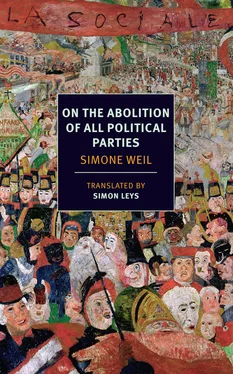Born in 1911, in a small town of Tsarist Russia (all his life, by the way, like many other Polish intellectuals — see Conrad! — he was to observe the Russian enigma with deep insight and horrified fascination), he was the scion of an aristocratic family, half-Polish and half-Lithuanian. In early childhood, he shared the nomadic life of his father, a civil engineer who was sent to various corners of Siberia in charge of the construction of government buildings, and thus he witnessed some of the fighting of the Bolshevik revolution. These early experiences provided a fitting prelude to the turmoils of his later life.
Milosz spent his youth and student years in Wilno, a baroque and cosmopolitan city where the main spoken languages were Polish and Yiddish, with also a smattering of Lithuanian, Byelorussian and Russian. In the 1930s, he went to live in Paris, where he perfected his excellent knowledge of French language and literature and enjoyed the guidance and affection of a distant relative who became his spiritual mentor, O.V. de L. Milosz (1877–1939), a former Lithuanian diplomat who had become a much admired French poet. The elder Milosz gave the younger decisive encouragement to follow his poetic calling.
Back in Poland, on the eve of war, Milosz worked for the national radio. In 1939, from the beginning of the German invasion, he took an active part in the underground resistance to the Nazis. German occupation was particularly savage in Poland; as Milosz himself observed later, ‘Horror is the law of living creatures, and civilisation is concerned with masking that truth… The habits of civilisation have a certain enduring quality, and the Germans in occupied Western Europe were obviously embarrassed and concealed their aims, while in Poland they acted completely openly.’ [1]
This confrontation with naked horror was to leave an indelible imprint upon his own vision of reality. The everyday order of our lives may seem to us natural and permanent, but it is in fact as fragile and illusory as the cardboard props on a theatrical stage. It can collapse in a flash and turn at once into black chaos. Our condition is precarious; even basic human decency can shatter and vanish in an instant: ‘The nearness of death destroys shame. Men and women change as soon as they know that the date of their execution has been fixed by a fat little man with shiny boots and a riding crop. They copulate in public, on a small bit of ground surrounded by barbed wire — their last home on Earth.’ [2]
After the war, like many Polish intellectuals who hoped that, by collaborating with the Communist regime, they might help it to reform itself, Milosz became a diplomat and was sent as cultural attaché, first to Washington and then to Paris. He understood very quickly that serving a Stalinist regime would entail not only morally and intellectually unacceptable compromise, but more simply would provoke downright revulsion: ‘A man may persuade himself by the most logical reasoning that he will greatly benefit his health by swallowing live frogs; and thus rationally convinced, he may swallow a first frog, then a second, but at the third his stomach will revolt.’ [3]
In 1951, he abandoned his posting, broke with the regime, and made a jump without return into ‘the abyss of exile,’ ‘the worst of all misfortunes, for it meant sterility and inaction.’ Unlike most exiled writers, however, he stuck with his mother language, his most precious belonging. With the exception of his private correspondence (in French and in English), he continued, until death, to do nearly all his writing in Polish.
The first ten years of his exile were spent in France. This was a period of extreme hardship, isolation and despair. The insecurity of his material conditions — to support his young family he had nothing but the precarious earnings from his pen — was further compounded by political ostracism from Parisian intellectual circles, whose cowardice and stupidity he was never to forget nor forgive. At first, and as long as he was carrying the prestigious title of an official representative of ‘Democratic Poland,’ the French ‘progressive’ intelligentsia (under the pontificate of Sartre — Beauvoir), had warmly welcomed him; but as soon as it became known that he had defected, he was treated as a leper. Even at his publisher’s office (Gallimard — the most prestigious and influential publisher in Paris), one editor took the thoughtful initiative of submitting his manuscripts to receive the imprimatur of a censor from the Polish embassy!
In 1953, he made his situation even worse by publishing what was to become his most influential work, The Captive Mind , written ‘not for a Western audience, but against it’ — against its obtuse and wilful blindness; the purpose was indeed to remind his readers that ‘if something exists in one place, it will exist everywhere.’ [4] Yet, with their appalling lack of imagination, ‘the inhabitants of Western countries little realise that millions of their fellow men who seem superficially more or less similar to them live in a world as fantastic as that of the men from Mars.’ Let us not forget: ‘Man is so plastic a being that one can even conceive of the day when a thoroughly self-respecting citizen can crawl about on all fours, sporting a tail of brightly coloured feathers as a sign of conformity to the order he lives in.’ [5] At the very moment when the intellectual and literary world was shunning him as if he had the plague, one man, a man of courage and integrity, extended to him a brotherly hand and helped him survive: Albert Camus. Soon, a deep friendship developed between the two writers — a friendship that was further strengthened by their shared admiration for Simone Weil.
Regarding Camus, one cannot fully understand his intellectual and spiritual development during the last part of his life — from the end of the war till his premature death in 1960 — without taking into account the exceptional importance of the influence on him of Simone Weil’s thought and the example of her life. It is a point which even his best biographers have not fully grasped, thus confirming Emerson’s opinion that literary biography is a vain and futile exercise, since it attempts to describe lives, the most significant events of which, by very definition, took place in a realm of silence and invisibility. [6]
As early as 1948, Camus undertook to publish, in a series (‘L’Espoir’) of which he was the director at Gallimard, two of the main works of Simone Weil on social and political issues, L’Enracinement and La Condition ouvrière (by the way, these two books were the most successful of the entire series). Together with Gustave Thibon (who undertook at the same time to edit a selection of Weil’s philosophical and religious writings), he thus became one of the earliest and most devoted guardians of her memory. More importantly, her writings became a constant source of inspiration for his own thinking, as is attested in many passages from his notebooks and was confirmed publicly on the occasion of his Nobel Prize in 1957: at a press conference in Stockholm, shortly before the ceremony, on being asked which living writers were most important to him, he named several friends, Algerian and French, then added, ‘And also Simone Weil — sometimes the dead are closer to us than the living.’
Some ten years earlier, as he was editing Simone Weil’s writings for publication, he made contact with her parents, who gave him a warm welcome, especially her mother, Mme Bernard Weil, who was herself a most remarkable person. Milosz came to know her too, and after Camus’ death — which deeply affected Mme Weil — he continued to visit her. [7] At the end of his essay on Weil, Milosz records a touching and revealing anecdote: the day Camus learned that he had been awarded the Nobel Prize for Literature, as he was being chased by a pack of journalists and photographers, he ran for shelter at Mme Weil’s apartment. We know that for Camus, who was wracked by self-doubt, this crushing honour was in many respects an ordeal: far from it giving him self-confidence, he was staggered and overwhelmed by it. Just as a religious believer, when hit by a stunning shock, spontaneously enters a church for a moment of silent contemplation, Camus experienced the need to meditate quietly, alone, in the old room where young Simone thought and wrote.
Читать дальше












